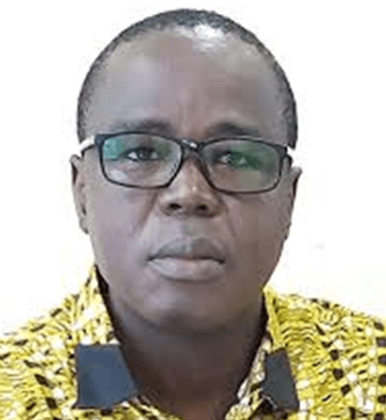By Amos SAFO
While many Ghanaians often queue under the scorchy sun to vote for one political party or to reject another party purely for economic reasons, others cast their vote without assessing the political implications of their votes.
For some people, especially the high-profile politicians or business men and women the change of a government can be a matter of life and death, freedom or nightmares.
The above scenarios affirm what is unfolding on the political scene as the new Attorney General of Ghana Dr Dominic Ayine has embarked on a freewheeling discontinuation of criminal or civil trials of some high-profile members of the ruling National Democratic Congress (NDC) led by President John Dramani Mahama. Below is a list of cases discontinued so far, with many people forecasting that many could follow.
- The Ambulance Trial (Dr Cassiel Ato Forson and Richard Jakpa)
Barely 24 hours after assuming office, Attorney General Ayine filed a notice on 23rd January to discontinue the controversial ambulance case against Finance Minister, Dr Cassiel Ato Forson and businessman Richard Jakpa. The case revolved around allegations of causing a financial loss of €2.37 million in a failed deal to procure ambulances for Ghana. The state had previously signalled its intent to appeal a Court of Appeal judgment delivered on 30th July 2024.
- COCOBOD Trial (Dr Stephen Opuni and Seidu Agongo)
On 28th January, an Accra High Court acquitted and discharged former Ghana Cocoa Board (COCOBOD) CEO Dr Stephen Opuni and businessman Seidu Agongo after a trial that had dragged on for seven years. The decision followed a withdrawal notice filed by the state under the directive of Attorney General Dr Ayine. The duo had been facing 24 charges, including causing a financial loss of over GH¢271 million in a fertiliser procurement deal during Dr Opuni’s tenure at COCOBOD.
- Bank of Ghana Case (Dr Johnson Pandit Asiama)
On 29th January, Dr Ayine filed a notice to withdraw all charges against former Second Deputy Governor (now Acting Governor) of the Bank of Ghana, Dr Johnson Pandit Asiama. Dr Asiama, along with others, had been facing charges since 2020, including fraudulent breach of trust, money laundering, conspiracy to commit a crime, and violations of the Bank of Ghana Act. The previous government blamed the collapse of the seven banks in 2018 to the actions or inactions of Dr. Asiamah who was in charge of Banking Supervision at the Bank of Ghana.
- Democracy Hub Protest Case
Furthermore, the Attorney General’s Office discontinued legal proceedings against members of the pressure group Democracy Hub, including lead conveners Oliver Barker-Vormawor, Elorm Ama Governor-Ababio, and Raphael Afful Williams. On 29th January 2025, the state filed a nolle prosequi, bringing an end to the case. The accused had been facing multiple charges, including unlawful assembly, destruction of public property, assault on a public officer, and conduct likely to breach the peace. In 2022 and 2023, Oliver Barker-Vormawor was among a pressure group that incited the Ghana Armed Forces to stage a coup in Ghana.
- SSNIT Case
On 7th February 2025, the Attorney General withdrew all charges against three out of four individuals accused of causing financial loss to the state in the Social Security and National Insurance Trust (SSNIT) trial. Those discharged included former SSNIT Director-General Dr Ernest Thompson, John Hagan Mensah, and Peter Hayibor. However, Caleb Kwaku Afaglo, the former Head of Management Information Systems (MIS) at SSNIT, still faces charges.
- Ofosu Ampofo Case
Moreover, the Attorney General filed a notice to withdraw all charges against former NDC Chairman Mr. Samuel Ofosu Ampofo and former Deputy Communications Officer Kweku Boahen. They had been charged with conspiracy to cause harm and assault on public officers. Additionally, Mr. Ofosu Ampofo was accused of inciting NDC communicators against public officers, including the Chairpersons of the National Peace Council and the Electoral Commission. In a video Mr. Ampofo unveiled a planned to kidnap several people as a strategy to cause fear and panic and to make the country ‘ungovernable.” Today, he serves as a Senior Political Advisor to the Vice President of Ghana Prof. Naana Opoku Agyeman.
- Saglemi Housing Project Case
Besides, the Attorney General, Dr Dominic Ayine officially withdrew all charges against former Works and Housing Minister, Mr. Collins Dauda and four others on 7th February 2025. The accused were facing 70 counts of causing financial loss to the state in connection with the $200 million Saglemi Affordable Housing Project. Those cleared alongside Collins Dauda include: Kweku Agyeman-Mensah (former Minister for Water Resources, Works, and Housing), Alhaji Ziblim Yakubu (former Chief Director of the Ministry for Water Resources, Works, and Housing), Nouvi Tetteh Angelo (CEO of Ridge Management Solutions Ghana Limited). The case was initiated under the previous administration, which alleged financial irregularities in the project’s execution.
Clearing agent
The blanket discontinuation of such cases has reignited debate as to who is the real ‘clearing agent.” While in opposition, President John Mahama and some of his party communicators described or derided ex-president Akufo-Addo as a ‘clearing agent’, perhaps, because of his perceived failure to prosecute members of his government suspected of indulging in corruption. Whether this is true or not depends on who is doing the analysis.
Several political analysts have argued that with these high-profile cases thrown out of the courts, the controversy surrounding President Mahama’s government is deepening. Whereas critics of the NDC government argue that the Attorney General’s conduct reinforces President Mahama’s brand as a “clearing agent”, NDC officials maintain that the trials amounted to political witch hunting. Overtime, political witch hunting has become an effective propaganda weapon politicians use as a guide to escape the wheels of justice.
The irony
In an article published on social media, Joshua Jebuntie Zaato shed light on what he describes as “Regime and Post-Regime Accountability.” He defined “Regime Accountability as a situation where a sitting President holds his appointees to account for their actions and when they fail, prosecute them for their crimes. That is the ideal or the norm.
But where a President or regime fails to hold appointees accountable, then it can be depicted as Post-Regime Accountability. This is defined as a situation where a sitting President or Regime holds former appointees accountable for their actions or inactions whilst in office. According to Mr. Zaato, irrespective of Regime or Post-Regime Accountability, the overarching objective is to do away with impunity and let anyone suspected of committing a crime to face the law, irrespective of political colours.
He concluded that what is unfolding is that former president and now the President has not only failed to adhere to “Regime Accountability” but has also thrown Post-Regime accountability to the dogs by discontinuing legitimate prosecutions of his former appointees. This is the “The Irony, Ghana We Dey”, Mr. Zaato concluded.
This development is sending the right or wrong signals that once anyone is a high-profile member of a ruling political party that person automatically is above the law and cannot be tried in the court; if even there is incontrovertible evidence of a crime, including causing financial loss to the state. It is only a court of competent jurisdiction that can and should discharge anyone suspected of causing financial loss to the state.
It is now becoming clear that the laws of Ghana are only applicable to those of us who are not high-profile politicians or hold political office. How then can we fight corruption, abuse of power and nepotism when selective justice has become the norm? What is unfolding is a potent setback in the fight against corruption in the public sector. During the 2024 election campaign President Mahama promised to fight corruption when voted to power. Given what is unfolding, President Mahama’s words are conflicting with his actions. The signs are clearly written on the wall that he lacks the political muscle to fight corruption.
Recovering all loot
It is laughable for a government that is busily freeing its cronies from trial to establish a body called “Operation Recover All Loot” (ORAL) to compile potential cases of corruption allegedly committed by its opponents for prosecution by the same courts.
If the discontinued trials of high profile NDC people amounted to political witch hunting, any trials of NDC’s political opponents can easily be branded as political witch hunting. It comes as no surprise that several leading members of the opposition New Patriotic Party (NPP) have also challenged the Attorney General’s move as calculated to circumvent the due process of the law. Meanwhile, several civil society organizations that were very loud against corruption during the tenure of the Akufo-Addo government are disturbingly quiet over the Attorney General’s unilateral decision to quash the corruption-related trials.
Moral justification
Our political leaders and the judicial system have no moral justification for speedily trying and sentencing ordinary people to prison for petty crimes, while the political class evade justice for causing financial loss to the state. It is evident that the prison walls were constructed to incarcerate only poor people, while politicians and their business cronies hardly go to jail for their heinous crimes against the state. In fairness to all Ghanaians, the entire penal system should be reviewed and all those languishing in jail for petty crimes pardoned or be made to render social services.
Perhaps, Ghana needs a “real people’s revolution” to ensure that everyone, irrespective of political class, religious or ethnic affiliation will stand trial for alleged corrupt practices against the state. What signals are we sending to the younger generations? What moral lessons, if any are we teaching the future leaders of Ghana? What is happening to President Mahama’s promise to reset economy and free Ghana from corruption? Is that all resetting an economy entails?










